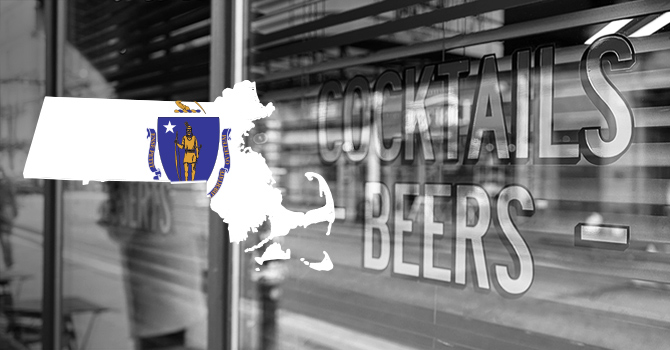
Chicago Mayor Proposes Permanent Curfew on Alcohol Sales
Chicago Mayor Lori Lightfoot proposed a new business relief package Wednesday, which includes the implementation of a 10 p.m. curfew on off-premise alcohol sales, according to WBEZ Chicago.
The package is an extension of the “Chi Biz Strong Initiative,” which originally created temporary measures in response to the COVID-19 pandemic. In 2020, Lightfoot cut off alcohol sales at 9 p.m, but extended sales to 11 p.m. in March, according to NBC Chicago.
The new permanent proposal would prohibit grocery stores and convenience stores from selling packaged alcohol between 10 p.m. and 7 a.m. Restaurants and bars can continue selling past the curfew.
Before COVID-19, liquor stores could sell booze until 2 or 3 a.m.
“The late night sale of package goods liquor has been a contributing factor in public safety disturbances and has had a notable impact on the quality of life in Chicago neighborhoods,” the proposed ordinance states. “The mitigation of late night sales of packaged goods has led to a reduction in violence and other concerning incidents.”
“Nobody should have to suffer because of liquor sales that stretch into the earlier morning hours that then become a real magnet for problems in the neighborhoods,” Lightfoot added in a press conference Thursday.
Lightfoot’s proposal would also extend a 15% cap on fees charged by apps such as DoorDash and Grubhub, would allow restaurants to continue to sell cocktails to-go, and would speed up licensing for new restaurants to open in the locations of previously closed restaurants, WBEZ Chicago reported.

Massachusetts Alcohol To-Go Sales to End June 15, Warns ABCC
Alcohol to-go sales and delivery will no longer be allowed in Massachusetts after the Commonwealth’s state of emergency ends June 15, the state’s Alcoholic Beverages Control Commission (ABCC) warned establishments this week, according to Boston 25 News.
Restaurants will also have to stop expanded outdoor dining 60 days later on August 15, unless extension measures are put in place.
Democratic state Sen. Diana DiZoglio is pushing for a bill that would extend restaurants’ ability to sell cocktails to-go for two more years, according to WCVB-TV.
DiZoglio is also asking lawmakers to permanently cap fees charged by third-party delivery apps. There is currently a 15% cap on delivery fees that will also lift on June 15.
“These measures were critical to helping our small businesses remain afloat in the face of the pandemic — and remain just as essential to them now, on the road to recover.” she said in a news release.
COVID-19-related restrictions will end in Massachusetts on Saturday, May 29.

Connecticut Extends Alcohol To-Go Sales For 3 More Years
The Connecticut House of Representatives passed a bi-partisan bill Monday, which includes several allowances for breweries, including allowing alcohol to-go sales for the next three years, according to the Connecticut (CT) Brewers Guild.
H.B. 6100 would allow breweries, bars, and restaurants to sell alcohol to-go direct-to-consumers through curbside pick-up and delivery, as long as deliveries are made by a direct employee of the establishment, or by a third-party with a state transporter’s permit.
The bill also would permit establishments to operate seasonal open-air beer gardens to sell alcohol in “a lot, yard, green, or other outdoor space,” as long as they have a permit.
Additionally, the measure would waive certain placards and posting regulations for manufacturers who are renewing or adding a liquor permit to their existing permits, effectively streamlining the licensing process, according to the CT Brewers Guild.
“We are excited to see how the industry and consumers adapt to these new allowances and take advantage of home delivery options and expanded to-go options,” Phil Pappas, executive director of the CT Brewers Guild, said in a release. “We’re grateful to the Legislature for stepping up to give our breweries more relief through this bill given the critical time for breweries to be able to grow employment and generate much-needed revenue at their local businesses.”